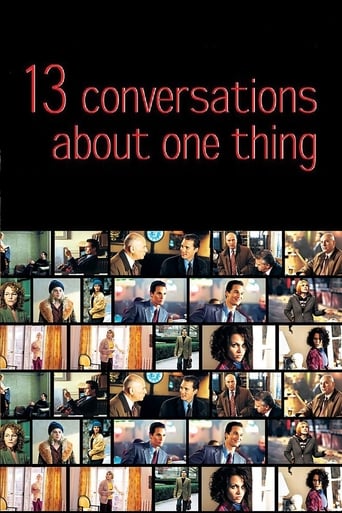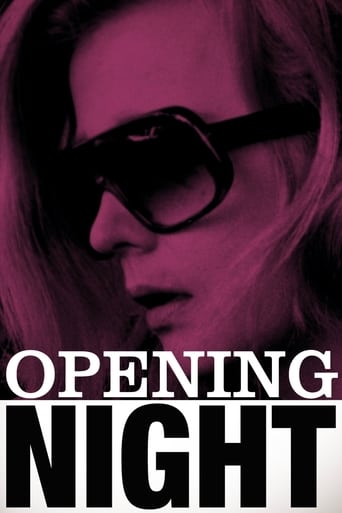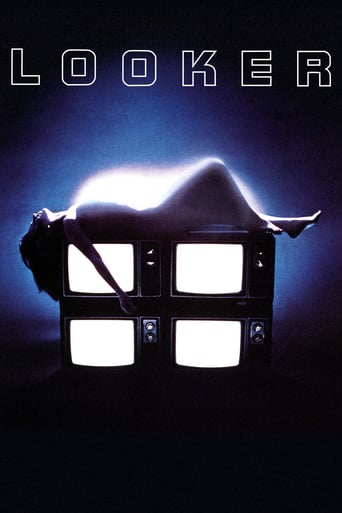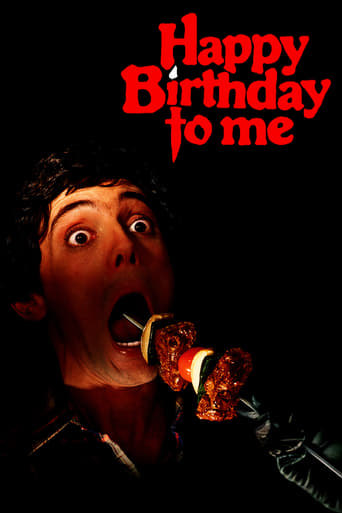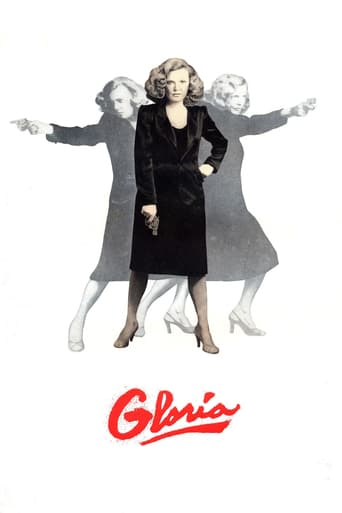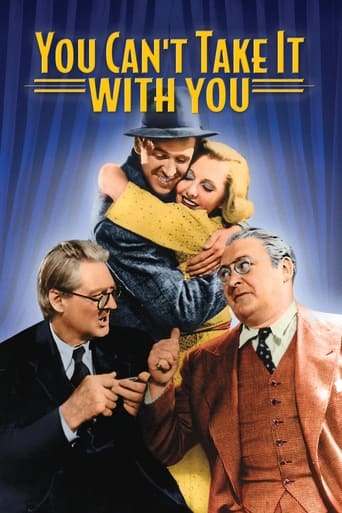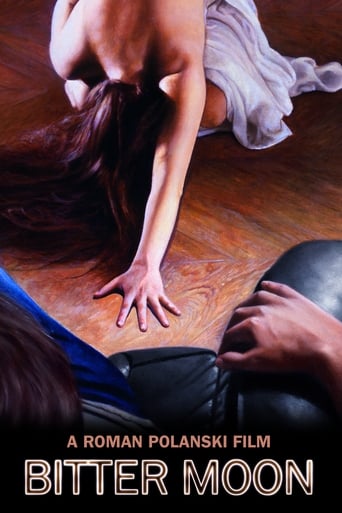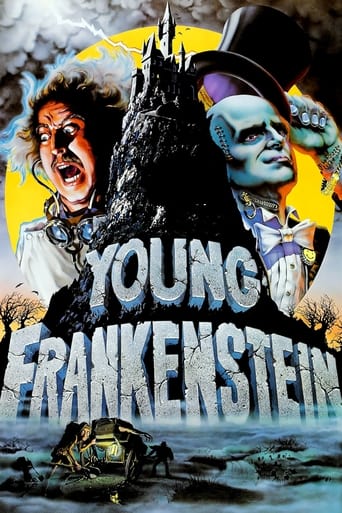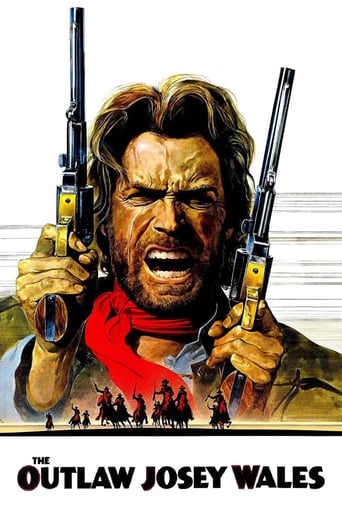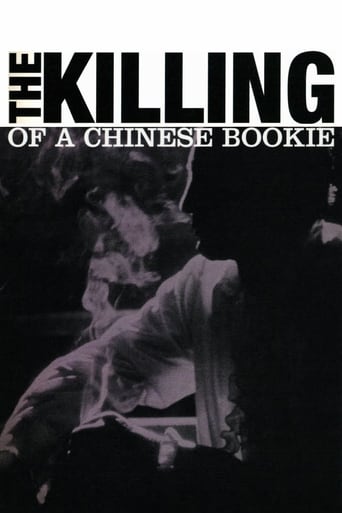


The Killing of a Chinese Bookie
Cosmo Vittelli, the proprietor of a sleazy, low-rent Hollywood cabaret, has a real affection for the women who strip in his peepshows and the staff who keep up his dingy establishment. He also has a major gambling problem that has gotten him in trouble before. When Cosmo loses big-time at an underground casino run by mobster Mort, he isn't able to pay up. Mort then offers Cosmo the chance to pay back his debt by knocking off a pesky, Mafia-protected bookie.
-
- Cast:
- Ben Gazzara , Timothy Carey , Seymour Cassel , Robert Phillips , Morgan Woodward , Al Ruban , Azizi Johari


Similar titles
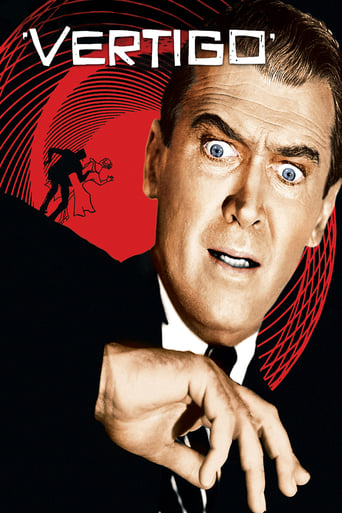
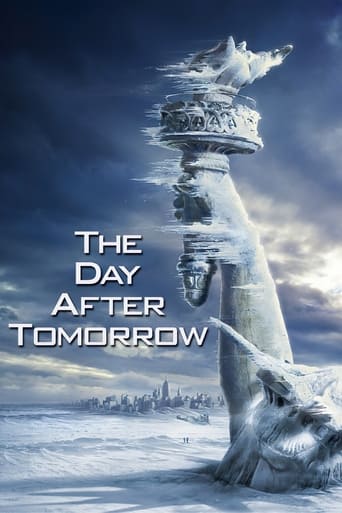
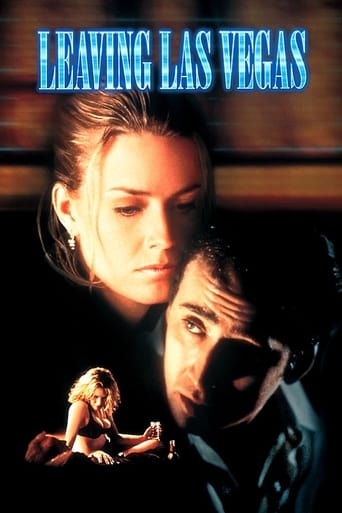
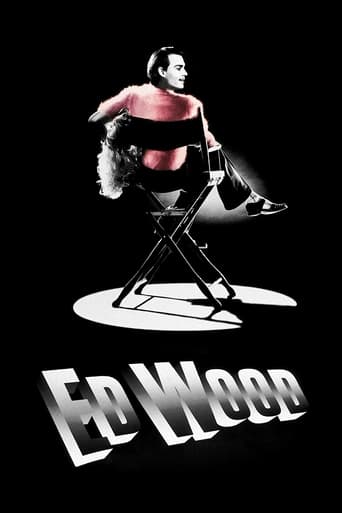
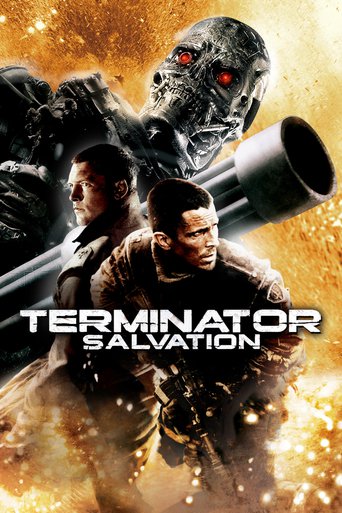
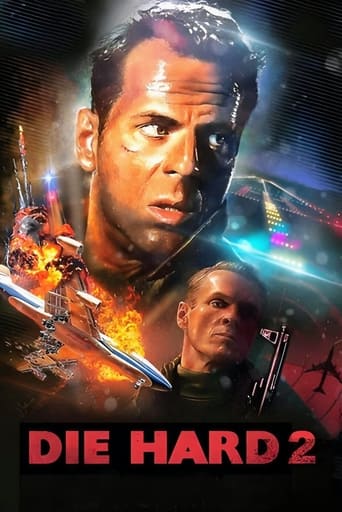
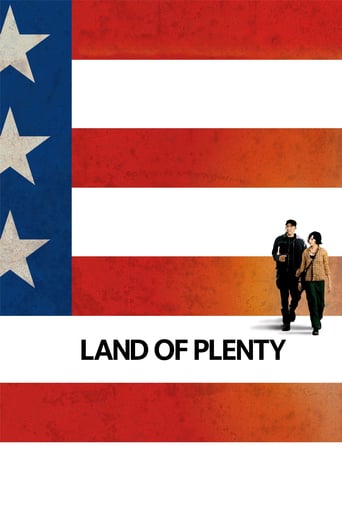
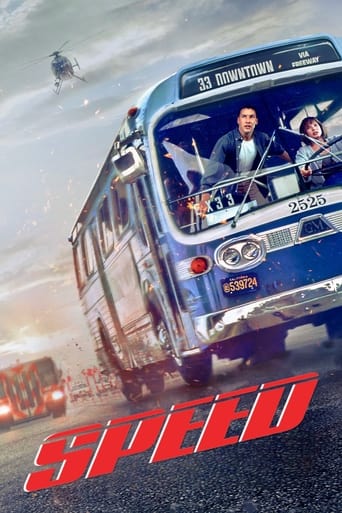
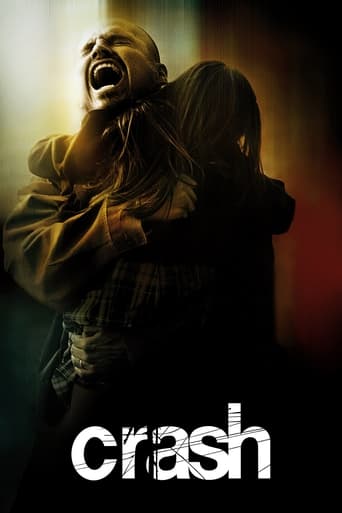
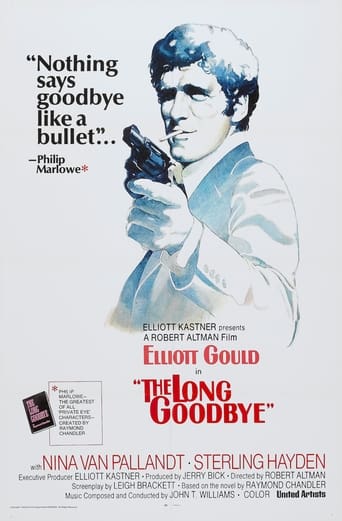
Reviews
Load of rubbish!!
Absolutely Brilliant!
To all those who have watched it: I hope you enjoyed it as much as I do.
Ok... Let's be honest. It cannot be the best movie but is quite enjoyable. The movie has the potential to develop a great plot for future movies
"The Killing of a Chinese Bookie", the original 1976 cut, was the first movie by Cassavette I had ever seen. I went in, only knowing the basic premise and that it was not a usual picture, and I was blown away. It completely changed my perception of how a film could be written, and opened me not just to his other films, but many other kinds of films in general. Now some time and many films later, and my opinion has changed very little on this particular piece."The Killing of a Chinese Bookie" revolves around strip club owner Cosmo Vitelli, a man who carries himself with swagger and dignity, who loves his joint, the Crazy Horse West, who loves the workers within it, but who is a man of great vice. After paying off one gambling debt, he falls into another, but this time from mobsters who offer him an alternative to paying: to murder a Chinese bookie.The experience of this film will differ depending on the version. Many prefer the 1978 recut, which is a very tight film, and it works as a moody neo noir picture. It has scenes not in the longer cut, but overall focuses entirely on plot.However my preference is easily for the original version. The leisurely, prolonged pace helps create a unique feel to the film, and also creates more of a balance. Whereas the 1978 film is dark, almost nihilistic, the 1976 version has much more heart to it. We see much more of the relationship between Vitelli and not just his workers, but the club itself. Thus one sees the true struggle, in a man being torn between committing a heinous act, or losing the thing he loves most. Add to that, the pace also creates more of a build up to the fated crossroad where Cosmo will either kill the bookie, get killed, or back out, resulting in that fateful scene meaning so much more. Cassavette made this film as an allegory to his struggles as an independent film maker, and in the 1976 cut this is much more apparent. Even apart from the thematic and narrative, though, the 1976 cut feels unlike almost any other film. Beyond the merits of it's story, "The Killing of a Chinese Bookie" is an experience, akin to the films of Andrei Tarkovsky in giving the sense that when the movie's done, one has not simply seen a great movie but been on a journey (while the 1978 version feels almost rushed in comparison)On a technical level, the film is low budget and it shows, but like films such as "Breathless" and "Mean Streets", the low budget, raw feel enhances the mood, especially of the night scene. Two pivotal scenes towards the end that take place at night posses a near unrivaled mood, and this is in great part thanks to hand held, almost documentary style that the movie is made in. The night club scenes are also a visual highlight, filmed in colored gels that make the club feel like a world all it's own.and of course like most Cassavette films, the dialogue has a very improvised feel (many to this day believe his films were improvised), which means people talk over one another, topics can change at any time, and there's no cinematic manipulation to enhance the impact of certain lines. While there's far less of the rapid and sudden emotional twists and turns within a scene that are a mark of most of his films, there's still plenty for fans of his to be familiar.If you haven't guessed by now, this is NOT a typical mobster film. It's nothing like "The Godfather" or the gangster films of Scorcesse (and no, I'm certainly not trying to put down those great films), or like any other. It's a very slow, methodical, non stylized picture that to this day will baffle the unprepared viewer. If you watch this and aren't familiar with Casavette's other films, know that it's not going to be quite like anything else you've seen.You can get this film either through the five DVD John Cassavette collection or the Criterion DVD. I can't vouch for the former, but the criterion has both the 1976 and 1978 cuts. While I by far prefer the 1976 version, you may as well get both and come to your own conclusion.
First off, I saw the longer, 1976 version, which clearly has some pacing problems (how much mediocre burlesque to we want to see?), but I'm not knocking it too much for that. It does has some brilliant moments, including the title scene; the night out with the girls, where Garraza incurs his debt; and Gazzara's escape from the hit man in the deserted building. But it also has little plot and some confusing editing.I'd give it a 5 for boring me in parts if it were not for the mind- blowing realism of the (mostly scripted) dialogue and the fascinating performance of Gazzara. Gazzara creates a truly unforgettable character with Cosmo Vittelli -- not particularly one that you like or can relate to, but certainly one that seems genuine and nuanced. I have bit of a spoiler coming here, so fair warning. One of the most bizarre parts of the film has it cutting away just when the mob hit man is about to track down Gazzara to rub him out in order to cover the mob's involvement with the Chinese bookie killing. We see Gazzara later on, so we know he escapes, but Cassavetes jumps us out of one of the most compelling scenes in the movie. Then he ends the film with more mediocre burlesque. This is certain to be one of the scenes that splits the viewing public. I'm sure plenty of people will slam the movie just on that, and I'm tempted to do so myself. However, after thinking about it for a bit, it makes the movie more thought provoking not to see the end of that scene.I'm guessing the 1978 version may be a bit better, since it trims down the nightclub acts. However, I'm not really subtracting too much rating on that account. The nightclub scenes all do seem very realistic, and the fact that Cosmo seems to be so interested in producing such goofy shows does tell us something about his character.
This 1976 John Cassavetes feature is one of his most blatantly autobiographical. Starring Ben Gazzara as sleazy strip club owner and tragic loser Cosmo Vitelli, the film is shot in a distant and poetic documentary style reminiscent of Cassavetes' earlier film 'A Woman Under the Influence' (1974), and can be thought of as a sort of companion piece.The film follows Vitelli as he fails to pay Gambling debt, is given the task of pegging off a Chinese book-keeper, and ends up killing several Chinese men by accident - causing him to plunge into even deeper trouble with criminals. It's a moving character study of a man in the claws of a desperate situation, and like most of Cassavetes' films is a forerunner to a lot of the indie filmmaking that came after it.An essential work by a director whose approach to capturing actors on camera inspired a generation of filmmakers, it is dark and foreboding in tone but also sublime and poetic in its use of meandering camera-work and close-ups. Ben Gazarra gives a fine performance as Cosmo, who is equal parts hero and sad moron, and the supporting cast does well embodying the gangsters, strippers, and Carnivalesque performers who move through his world.An interesting piece of American cinema and essential Cassavetes. 7/10.
Cosmo Vitelli is the man, the man ager with whom you must cut the bullshit and talk straight. And speaking of straight, he's definitely one of the manliest men who's neither a cop, nor a criminal, the man is a strip joint owner in Los Angeles. And from the first minutes of the film, he exudes a sense of magnetic self-confidence and charismatic toughness that automatically wins your sympathy; hence my deliberate abuse of the word 'man'.Ben Gazzara, at the pinnacle of his collaboration with director John Cassavetes, perfectly embodies the characteristics of the self-made-man in his forties, with a remarkable capability never to flinch even in the most extreme situations. His suave voice would make any female heart melt while his enigmatic look combined with a tense smile could betray a small ounce of sensitivity, but any true hint of vulnerability is totally masked behind the naturally cool strength of Cosmo Vitelli. And this feeling is reinforced by the context in which we discover him, when he's just finished to pay a longstanding debt.And Cosmo, while relieved from the debt of that sleazy loser, doesn't hesitate to finally express all the contempt he had for him, with a smile that tells a lot about his nerve. Talk about a way to set a great character, whenever we follow Cosmo, we trust him, for one thing, we almost feel like one of his strippers when he takes them to the poker game to celebrate the end of his debtor's position, exhibiting them as so many trophies and highlights of his personal success. Cosmo is ballsy a la Tony Montana and exudes respect like Vito Corleone. He's a man from a man and a woman's point of view. He's not 'Il Padrino', he's 'Il Padrone'.But in an ironic twist, this respectable figure who deals with his club audience like a magician with his cards and acts with his strippers as a responsible fatherly figure taking care of his protégées, this man will commit a mistake by contracting a new debt from men far above the level of threat from the previous loan shark. And then, there's an immediate contradiction between Cosmo with the three beautiful girls, with the limo and that confident smile, and the new loser's condition he's suddenly stuck in. And while the guys ask for money and get more and more menacing, Cosmo tries to handle them his way, but even Cosmo's way sometimes doesn't work. In a lucid resignation, Cosmo understands there's no use to get impressed by Timothy Carey's character who carries naturally villainous features or the hypocritically friendly look of Mort, played by Seymour Cassel, but he knows damn well that these guys mean business, and he only wants to show them that he wouldn't be the easier nut to crack.These are the parameters to start with, and it's surprising how they deviate from Cassavetes' usual tone. John Cassavetes cared less about telling a story than plunging you into an engaging human experience, it didn't need a beginning or an end, any emotion could provide its own thrills or, on the contrary, remain neutral in the most frustrating but realistically anticlimactic aspect of life. Still, it's about how people deal with a specific situation, about their emotional struggle, there's no mission, no hero or villain in Cassavetes' films, it's about raw experiences from which you could take your own insights. This is the startling first impression of "The Killing of a Chinese Bookie" : visually, it looks like a Cassavetes film that borrowed the rough and gripping style of Scorsese's "Mean Streets" with an interesting noir feeling, and plot-wise, the movie features what seems to be a hero, and surely what seems to be villains, it features a mission, hell it's even in the title! but as I said, this is only a 'first impression'. Actually, the crime doesn't even consecrate the true meaning lying beneath the story. It's not about a man who must kill someone to cancel out a debt, it's about a man who only wishes to run his business while he's victim of a harassment that deprives him from his only source of happiness and life comfort. It's as simple as that. At one crucial moment, so different in the general mood of the film, Cosmo finally opens his heart to deliver what he believes to be the truest secret of happiness : being comfortable, loving what you do, with never caring of the adversity that would try to prevent you from a sincere enjoyment. At this moment, you forget about the killing.Why a strip-joint? Why that "Crazy Horse" club that doesn't even feature very entertaining acts? Because this is Cosmo's world, Cassavetes makes it appealing by a sensitive direction focusing more on the human aspect of the relationships between Cosmo and his girls and 'Mr. Sophistication', and by contrast, the gloomier and darker scenes involving the crime and its aftermath, some moments where your eyes can hardly perceive what is happening. It's all about playing with darkness and light, and in this game, Cosmo's profession plays a crucial role, and it's only justice if he manages accomplish his mission and then to escape thanks to his professionalism. Finally the film reveals itself to be a tribute for people who try to stay faithful to their ideals despite all the adversity, and all the attempts to stop them.The film is Cassavetes' allegory describing his sensation of suffocation while harassed by a system trying to prevent him from accomplishing his work the way he wants. He couldn't live, breath, play his game because of the system, and it's extraordinary that he managed to translate these frustrations into a film that stands out on its own merit regardless of any symbolical interpretation. And Ben Gazzara's (so unfairly underrated) performance is the soul of the movie's profound humanity, as he makes this story not just business, but also personal ...

